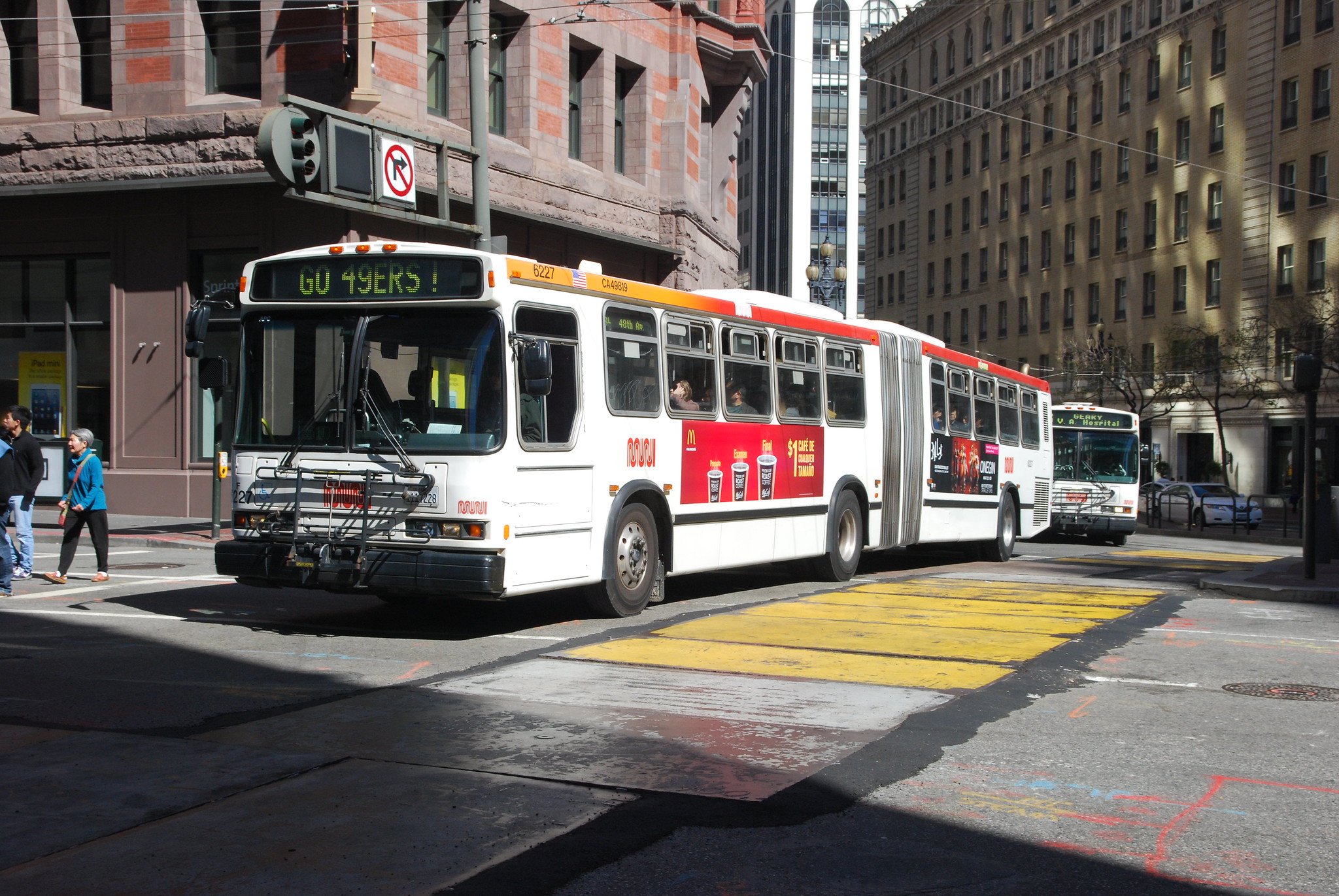Transit agencies can reverse the trend of falling ridership and maintain or even boost revenue — if they eschew regressive fare hikes in favor of improving the quality and affordability of their services, according to a TransitCenter paper released Thursday.
That would require an attitudinal shift, toward treating the bus and rail systems they run like a public trust — and not a cash box, as too many transit leaders do now.
"Focusing on pricing really highlights transit as a revenue-generation source instead of a public service, but public transit is a public service," TransitCenter program director Stephanie Lotshaw, who co-wrote the report, told Streetsblog, adding, "that's why it was created in the first place."
Researchers at the New York-based transportation foundation studied transit agencies in San Francisco, Portland, and Seattle that developed policies for expanding passenger access and convenience at a small cost to their system, adjusting their budgets accordingly.
Policies to improve ridership include pre-paid boarding in order to speed up bus service, flat rates for transit regardless of time or zone, eliminating transfer fees between systems, and discounting ride for those who can't afford a full fare, the paper said.
"What we see is there’s a basket of rider-friendly policies that these agencies are pursing," TransitCenter spokesman Ben Fried told Streetsblog. "The mentality that holds other agencies back is the fear of revenue loss. But if they just get over that, they’ll improve the rider experience — and they don’t have much to fear with revenue, either."
The San Francisco Municipal Transportation Agency took several measures to improve the quality of its Muni trolley and bus service, including the adoption of all-door boarding in 2012, despite concerns over fare evasion. By allowing passengers to enter front and rear doors by using an electronic-payment Clipper card, the amount of time its buses idled at stops dropped by 38 percent. Those who don't have a card could still board in the front and pay with cash. Bus ridership has remained consistent, from 158 million annual trips in 2011 to 161 million annual trips in 2018, according to National Transit Database figures, and fare evasion remained minimal.
The SFMTA also allows 118,000 seniors, disabled residents, and youths to ride buses and trolleys at no charge and offers a 25 cent discount for pre-paid single rides through its phone app or Clipper card, encouraging people to board more quickly. The SFMTA has tied transit fare rises to corresponding hikes in parking fees, which the agency can do because it also manages street parking, and used the revenue from parking in order to expand its discounted fare program.
"They had power to control municipal-parking prices, " Fried said. "One knob is the discount program, another knob is the regular fare, another knob is parking rate, and San Francisco can tweak those knobs. It's unique to the city."
Portland has a similar contactless card called the Hop Fastpass; passengers can use the same pass on multiple regional services without incurring a transfer fee. The no-fee decision sounds simple, and it is, but it required the heads of TriMet, which runs Portland's bus, light rail and commuter rail systems, the Portland Streetcar, and C-TRAN whose buses also cover Clark County, Washington, to agree on pricing guidelines.
"The agencies got over this territoriality and the notion that their trips need to be their revenue, which really gets in the way of rider experience," Lotshaw said. "It wasn’t actually hard, they wanted to make everything more seamless."
Seattle's King County Metro simplified its fare system from a three-tiered structure based on geography and time of day to a a flat $2.75 in 2017. The agency also has a generous discount programs — offering a reduced-price pass to the 31 percent of its passengers who are children, seniors, disabled or have low incomes.
Other cities are exploring these innovations. New York and Los Angeles have adopted all-door boarding on some express bus lines. Minneapolis has instituted $1 passes for low-income riders. Austin has simplified its bus-rapid-transit fares after advocates rallied for changes.
But some transit agencies still resist low-cost changes that could make a huge difference for passengers. Philadelphia's SEPTA system is balking at removing the $1 transfer fee between buses and subways even though the city wants it. Chicago's mayor is fighting with a political rival over lowering fares on commuter rail and allowing a free transfer to the subway line. Bay Area officials are stumbling toward dramatically simplifying fares across 27 different transit systems — but much work remains.
Lotshaw argues that transit leaders must get away from their "scarcity mentality" and trust that the services can make up in volume what they sacrifice in price.
"Agencies have struggled to make strategic fare policy decisions that benefit riders. In the private sector there is a profit motive, which in turn drives improvement," Lotshaw said. "Transit agencies can improve too — we hope they use these tools and strategies to guide rider-centric fare policy."






